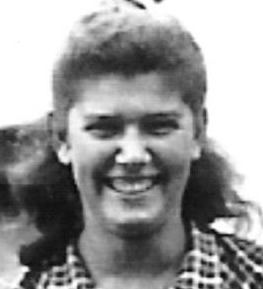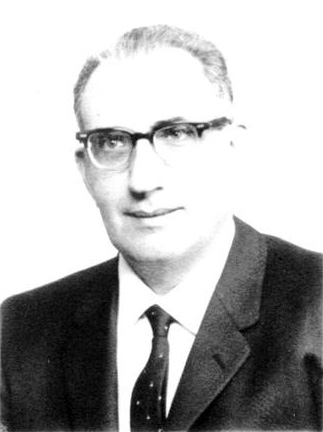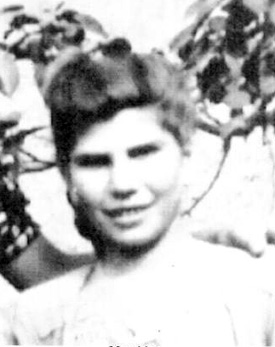| 15. Deserted and Disappointed | ||||
|
A letter from Tzipi informed me that her temporary Apprentice Home had been closed dawn and everybody had to leave. Hori had been ordered to report to the Forced-Labor service, and the rest of the younger boys had dispersed. She had remained helpless, gravely ill, and without hope of finding another lodging, let alone moving into one by herself, even if she had been able to find one. In her desperate situation, salvation came from an entirely unexpected source. Ephraim (Efra) Teichman, a prominent member of our Central Secretariat, who also played an important role in the Rescue and Resistance Organization, had heard about her misery and offered her his home, which was a relatively safe shelter, not marked as Jewish residence with yellow Star of David. She was writing this letter from this "safe house", where Efra was caring for all her needs under his cover identity as a Hungarian State Railway (MÁV) officer. This information alleviated my worries about her. In my reply I even asked her jokingly how much rent she had to pay for such luxurious accommodation.
Yehuda was very worried and had a foreboding feeling that the deported members of our family were lost, a feeling I also felt as I read his story. At that time I still did not know the nature of these trains, but he had escaped from Slovakia only a short while earlier, from where "resettlement" trains had been transporting loads of Jews since 1942, officially "to work beyond the borders"-a mysterious place from which nobody had yet returned and from which no letter had ever been postmarked. I am unable to describe what I felt on reading this horrible news. Broken-hearted, I imagined my loved ones in that unbearable atmosphere; my pious father betrayed in his unshakable belief; my delicate mother, who loathed vulgarity and rudeness, experiencing this humiliating situation; my young sisters trembling with fear and worrying for their parents. I was engulfed by gloom, dark despair, and a sense of mourning. One bright spot penetrating my gloomy mood arrived with another message from Tzipi: my brother Yehuda with our sisters, Frida, Rózsi (Tzivon) and Sara had set out on their way to Eretz Yisrael (then Palestine) via Spain, joining a group of about 1,700 Jews from all over Hungary, including a number of Halutzim (pioneers), members of various Zionist youth movements. They constituted a pilot group, planned to open the way for thousands more to follow, as part of a more comprehensive agreement between top Nazi authorities in Hungary, headed by Adolf Eichman, and Rudolph Kastner, a Zionist leader and member of the Rescue Committee. According to the plan, World Jewry was supposed to provide trucks to the German army in exchange for Nazi-granted permits allowing Hungarian Jews to leave for Palestine. The pilot group, including many prominent Jewish families and some leaders of the Zionist Organization, did indeed leave Hungary, but instead of heading for Palestine, they were taken to Bergen-Belsen, an infamous German concentration camp, ostensibly until the financial issue was settled. For me this meant that all my living family members were in the hands of the Nazi monsters; some of them might have been murdered already, and the rest taken hostage-who knew for how long and under what living conditions.
I felt my life falling apart. The only ray of hope that still penetrated my darkness, Tzipi, sent me back into despair and contributed a final blow. Near the end of her long letter she alluded to my jocular question concerning the "rent" for her accommodation with Efra. Of course there was no rent and no precondition of any kind, but her situation was 'dynamic' and its development 'natural'. I read on, my heart pounding wildly. Living under the same roof with Efra, she had come to appreciate his kindness, attentiveness and more than touching care for all her needs. As mentioned before, Efra was an underground activist who lived in constant danger. On arriving home, the daylong tension was still discernible in his face, in his eyes, but he never mentioned his work to her, as he didn't want to worry her. She had always felt his inner tension and made efforts to relieve it, to calm him sufficiently to start another day in the morning. The tenderness she felt and demonstrated toward him had gradually turned to love. All this confession sounded nice and convincing, but I was unable to continue reading; I jammed the letter into my pocket, and an uncontrollable sob shook me violently. My last and only support had failed and disappointed me. When my friend Joseph Schaeffer came by, he put a soothing hand on my shoulder and asked what it was that so upset me. Soon Joseph Meyer joined us and I poured my heavy heart out to my two friends until late that night while they remained, consoling and encouraging me. How lucky it was that we were together, that we could share our problems and worries, and that we were able to encourage and support each other when in need. Eventually I calmed down and went to sleep. In he morning I got up with all the others as usual and went back to wok with my faithful sacks. In my response to Tzipi, without grudge or complaint, I said nothing about our mutual problem. Her answer came instantly. She felt that the three of us had to meet as soon as possible to discuss our "triangle" and promised me help in wrangling leave for such a meeting. Some days later a letter, ostensibly from my brother, passed the censor, reporting that a bomb had gravely damaged his house and that he needed help urgently. Such distressing news usually sufficed as an excuse for getting a few days off from the labor units. Indeed I was granted furlough by our commander, whose desk lock I had fixed some days earlier. He listened to my request very kindly. I suppose my nickname also had something to do with this leave. As a Jew in the Hungarian Labor service, I had to travel with my military beret and yellow armband, and I was only allowed to reside in a house marked with yellow Star of David, while Tzipi and Efra lived under Christian identities. However, Efra had prepared a place for me in a "friendly" barracks where forced laborers like myself could stay undisturbed and even receive daily meals during their visit in Budapest. We set our meeting place in the Buda woods where Tzipi and I used to spend our Sundays "ages earlier". As we waited for Efra to join us, I was glad to notice that Tzipi looked well and showed no sign of serious illness. Efra arrived more than an hour late, exhausted and excited. When he regained his breath, he explained that a traffic policeman had stopped him on his motorcycle and had demanded his briefcase and ordered Efra to follow him to the nearest police station, which he did on foot, pushing the motorcycle ahead of him. The briefcase had been jammed with banknotes and forged documents he was going to distribute among refugees as part of his underground activity. Had the policeman opened it while he was present, its content would have been disastrous for Efra and the whole rescue organization. Upon reaching the station, the officer yelled at him to wait while he disappeared with the briefcase in the building. Efra had started his motorbike and raced to our meeting place without stopping. The documents and the money were lost, but he himself was saved. When we started to speak about "our" problem, both he and Tzipi admitted that if I had been gravely hurt and they were ready to "undo" everything if I had insisted. Astonished, I was unable to utter a word while Tzipi nodded her consent and her eyes shone with approval. When I came to my senses and regained control over my voice, I told her calmly that, under the prevailing circumstances, that is, when I could not be beside her and not even be master of my own fate, I must not listen exclusively to my feelings; that I could in no way take responsibility for her fate and well-being; and that I was unable to accord her the kind of comfort and living conditions she was enjoying at that time. The only thing I could do was to wish them whole-heartedly full happiness and the best of luck. We embraced, the three of us, happy and moved. They promised to make effort to liberate us from our labor-service unit as soon as possible. We parted in peace, and I returned to my friends and my everyday toil. |
||||


